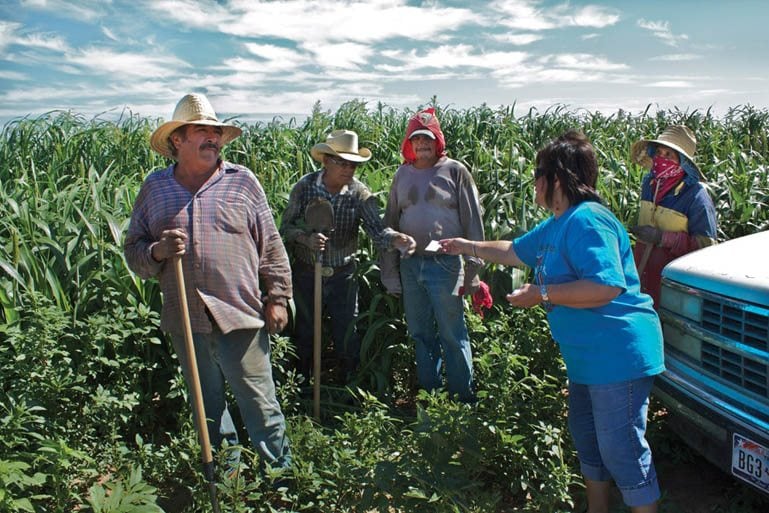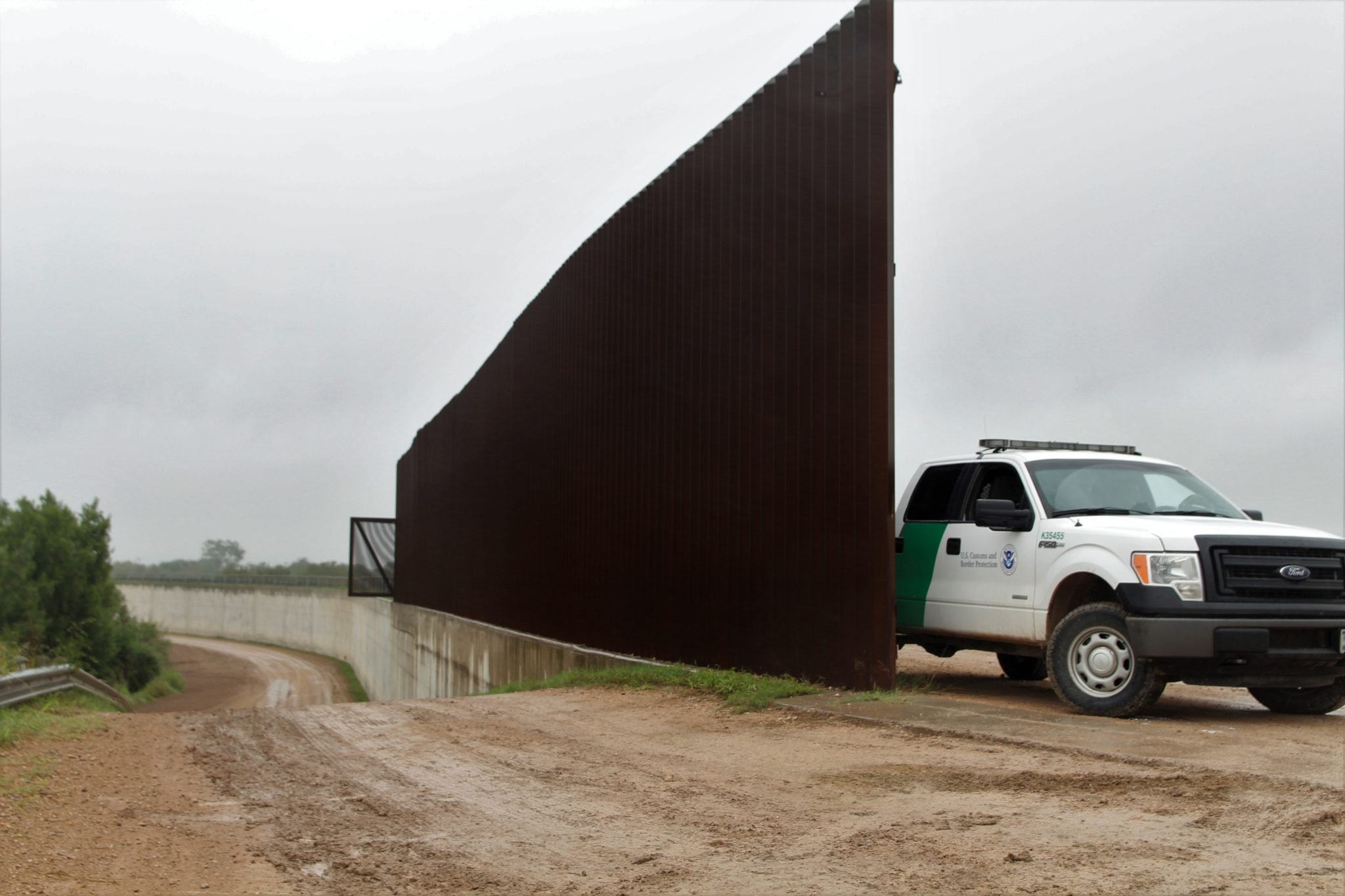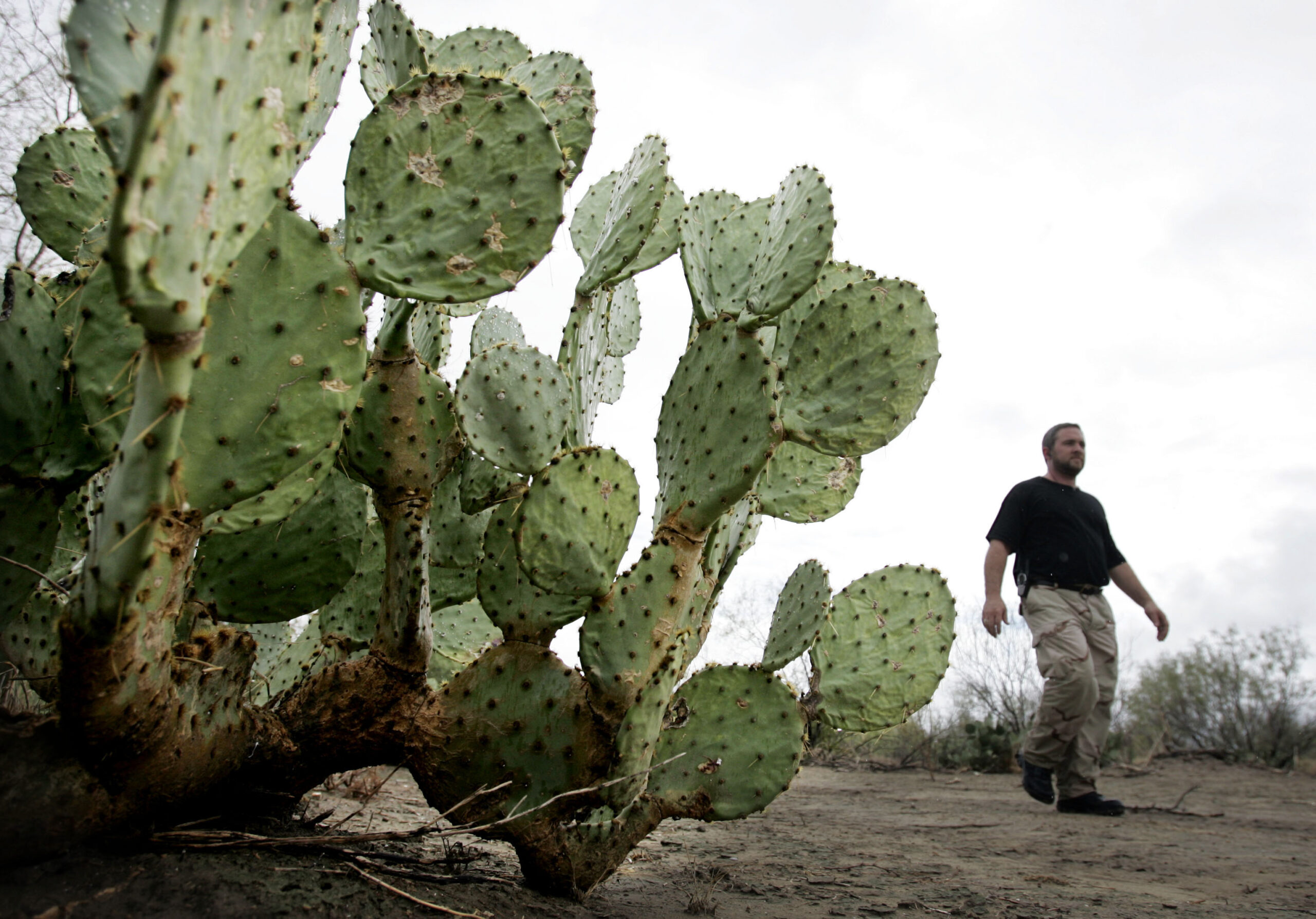
Texas Farmworkers Face a Housing Crisis. Will the Legislature Ignore Them?
Nine in 10 Texas farmworkers lack access to licensed housing, and many live without running water, electricity or ventilation.


Big business calls for billions in tax cuts. State agencies ask for sweeping reforms. Ideologues demand action on their agenda. Justino DeLeon’s “ask” at the Texas Legislature is modest in comparison.
“I’ve been a farmworker since 1973, and I’ve picked watermelons all day while sleeping on pieces of cardboard on the floor,” said DeLeon, who traveled 300 miles from Pharr to testify at a House committee hearing on Tuesday. “We don’t ask for much, just for dignified housing to be able to keep working to feed our children.”
On Tuesday, legislators heard from advocates on a reform bill that would tackle a housing crisis faced by Texas’ migrant agricultural laborers. House Bill 2365, authored by Representative Ramon Romero Jr., D-Fort Worth, would crack down on growers who provide inadequate or unlicensed housing.
The 200,000-plus farmworkers in Texas form the backbone of the state’s vast agricultural sector. The workers earn poverty-level wages and relocate from harvest to harvest, making them dependent on housing provided by their employers.
Nine in 10 Texas farmworkers lack access to licensed housing, with many sleeping packed together on floors in bug-infested, ramshackle structures that lack running water, electricity or ventilation. The agency tasked with oversight, the Texas Department of Housing and Community Affairs (TDHCA), has never punished a single noncompliant or unlicensed facility since it took over the program in 2005, according to a 2016 investigation by the Austin American-Statesman.
HB 2365 would mandate that TDHCA regularly inspect farmworker housing and follow up on complaints. It would also increase fines for noncompliant growers, money that would then be used to fund further enforcement. The bill would empower both workers and advocacy organizations to appeal the agency’s licensing decisions.
“There’s a director in that agency [TDHCA] and it’s absolutely his responsibility to inspect farmworker housing; it’s just not a priority,” said Romero. “The question is: Why is this not a priority? Once again, just like when my father was in the Bracero program, they’re invisible people.” (The Bracero program brought Mexican laborers to the United States from 1942 to 1964.)
Romero told the Observer there may not be enough time left to get the legislation passed, even if he can get Republican colleagues on board. On Tuesday, four months into the legislative session, the bill was left pending in the House Committee on Urban Affairs.
“It’s pretty late to be only getting a hearing, so is there enough time at this point to move something through? The answer, unfortunately, is not likely,” said Romero. “But if the bill somehow does make it to the floor, we’d get to hear the full House answer the question of whether these conditions are something you can witness and do nothing about.”
TDHCA Executive Director Tim Irvine told the Observer the agency does not comment on pending legislation.
Senator José Rodríguez, D-El Paso, is carrying an identical Senate companion bill, which has yet to be heard, and state Representative Diego Bernal, D-San Antonio, is carrying a stripped-down version that was left pending Tuesday.
All three legislators took inspiration from the Statesman’s 2016 investigation and then began meeting with stakeholders, including Texas RioGrande Legal Aid, to craft the bill.
Each lawmaker has a personal stake in the legislation: Rodriguez was a migrant farmworker himself as a child, as were Romero and Bernal’s parents.
“I lived in chicken coops and cattle barns and other so-called housing,” said Rodriguez in a March hearing. “It is unacceptable and unconscionable that the state of Texas is still providing that type of housing.”


